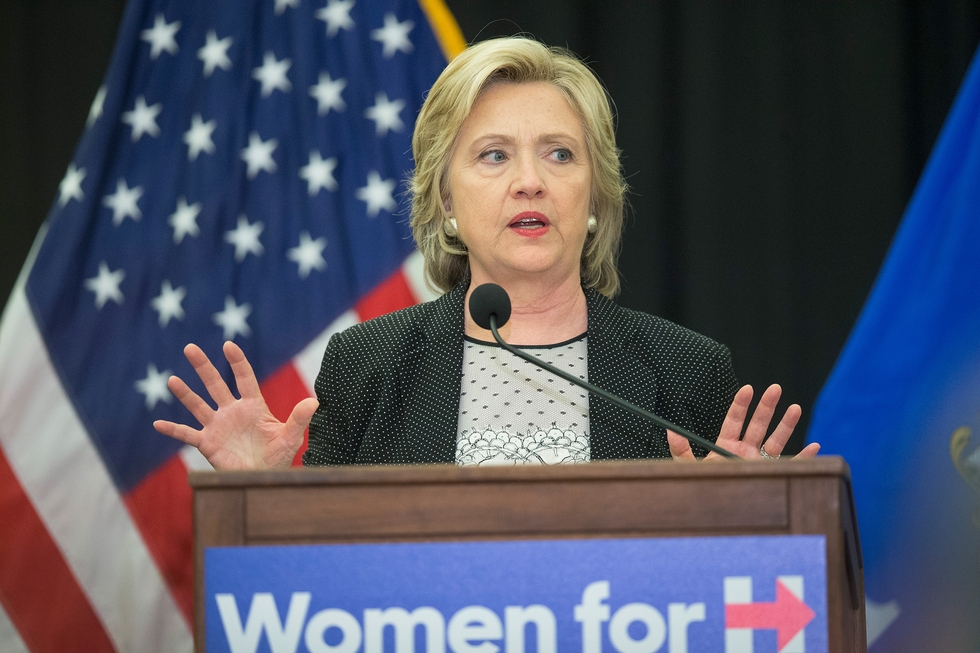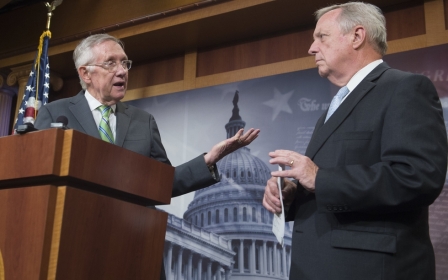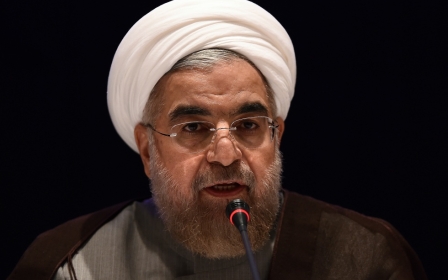Clinton's misperception of Iran

In a recent policy speech on Iran, the Democratic presidential hopeful Hillary Clinton announced her support of the nuclear deal with Iran as well as her determination to stand up to Iran and deter the Iranian threat in the Middle East as the next US president. Clinton compared Iran to ISIS and accused Tehran of fomenting chaos and supporting terrorism beyond its borders, and portrayed the Islamic Republic as a “brutal regime”. This while vowing to take military action if Iran's leaders were to decide to move towards nuclear weapons in the future.
Clinton combined her vehement attack on Iran with a vigorous defence of Israel, having fallen out of favour with the Obama White House over her criticism of the deal. In doing so, Clinton has now successfully sold her image as an ardent friend of Israel who will, if elected, heal the present wounds in the special relationship between US and Israel.
But a major flaw in Clinton's perspective on Iran is that it recycles the enemy image of Iran precisely at the time when the landmark nuclear deal has introduced major cracks in the negative stereotypical Western images of Iran, reflected in Iran's re-normalisation of relations with the United Kingdom and the recent high-profile Western diplomatic visits to Iran, including Austrian President Heinz Fischer and the foreign ministers of France, Laurent Fabius, and a number of other European countries since the nuclear deal was reached in July.
Unfortunately, the US is presently lagging behind its European partners, despite the fact that the nuclear deal owes a great deal to the leadership role played by the US's diplomats. Instead of reaping the harvests of such leadership, the US has intentionally sidelined itself from the new Iran-West detente that benefits European and Asian businesses while US companies continue to be barred from Iran business due to the lingering unilateral US sanctions. Concerning the latter, under the nuclear deal, the US has committed to remove the bar on "non-US nationals" doing business with Iran, thus continuing with the counterproductive “self-sanctioning” of the US business community.
Indeed, what is conspicuously absent in the US today is "smart economics" that would complement the "smart power" diplomatic leadership evinced during the marathon Iran negotiations. This, in turn, requires a new American willingness to follow the European footsteps on Iran, instead of self-entrapment in the familiar pattern of demonisation of Iran and relying on the one-dimensional "coercive strategy." A conceptual jailbreak from the limited discourse on containment is also absent, as a result of which the clichéd Iran-bashing sentiments reduce a complex reality, such as with respect to Iran's mixed republican and theocratic system, to a number of simplistic dichotomies.
Clearly, so long as the caricatures remain intact in the US political narratives on Iran, it is difficult to comprehend the logic of cooperation with Iran on a broad range of regional stability issues.
With respect to Clinton's misperception of Iran, it ought to be deconstructed and its flaws in political reductionism exposed for critical scrutiny. As the British Foreign Secretary, Philip Hammond, recently stated while visiting Tehran, Iran is too important as a strategic regional powerhouse to ignore.
The US should explore the venues for improvement of relations with Iran on all political, economic and strategic dimensions, which can be rather easily done by using the compass of national interests for both nations and thus addressing the options for a process-oriented rapprochement. In such a process, confidence and trust-building is key and requires sustained efforts to mitigate the historical grievances that have prevented the onset of normal diplomatic relations between the two countries.
Certainly, the moderate Rouhani administration is ripely poised to extend the limited nuclear bargain toward if not a grand bargain, as hoped for by some Iran-watchers in the West, but at least incremental, and consistent, improvement in US-Iran relations that would, in turn, foster better understanding of how to telescope the nuclear agreement to a meaningful détente. The big question is, of course, whether or not the US is willing to take certain chances and give detente a chance, instead of constantly vilifying Iran and thus miss a near golden opportunity for a big leap forward in the stalemated relations with Iran?
Here, learning from history is important, in light of the Bill Clinton administration's legacy of rebuffing the reformist Iranian president Mohammad Khatami during the 1990s and early 2000s, which will be likely repeated by Hillary the president in the absence of any evolutionary appreciation of Iran's significance and regional role on the part of Hillary and other like-minded US politicians.
In other words, despite the nuclear breakthrough, given the persistent misperceptions of Iran, the utterly one-dimensional and ultimately dysfunctional Iran containment strategy will likely continue and thus guarantee a perpetual diplomatic stalemate.
In order to avoid past errors, corrective steps by the US are needed, beginning with a conceptual jailbreak from the highly counterproductive Manichean enemy images of Iran that nowadays pepper Clinton’s speeches on Iran.
To act presidentially, however, Clinton must boldly present a new vision of US-Iran prospective relations based on shared and complementary interests and concerns that will resonate with the Iranian moderates and their masses of supporters who yearn for a post-nuclear crisis normalisation of Iran's place in international relations.
To their dismay, the latter are discovering that in spite of Iran's "new pragmatism" displayed in the nuclear negotiations, Washington is still addicted to coercive diplomacy and even "regime change," which is bound to fuel Iranian paranoia that the real aim of the nuclear deal might be to weaken Iran and ripen it for future US interventionism.
Although this may not be a systematic goal of the US government, now or in the proximate future, nonetheless there is no doubt that the ingrained US misperceptions fully embraced by Hillary Clinton simply reinforce their mirror-image in Iran, thus augmenting the prospects for a much-needed breakthrough in the long-standing US-Iran stalemate.
- Kaveh Afrasiabi, PhD, is a former political science professor at Tehran University and the author of several books on Iran’s foreign policy. His writings have appeared on several online and print publications, including UN Chronicle, New York Times, Der Tagesspiegel, Middle East Journal, Harvard International Review, and The Guardian among others.
The views expressed in this article belong to the author and do not necessarily reflect the editorial policy of Middle East Eye.
Photo: Democratic presidential candidate Hillary Clinton speaks to guests gathered for a campaign event at the University of Wisconsin-Milwaukee on 10 September, 2015 in Milwaukee, Wisconsin (AFP)
New MEE newsletter: Jerusalem Dispatch
Sign up to get the latest insights and analysis on Israel-Palestine, alongside Turkey Unpacked and other MEE newsletters
Middle East Eye delivers independent and unrivalled coverage and analysis of the Middle East, North Africa and beyond. To learn more about republishing this content and the associated fees, please fill out this form. More about MEE can be found here.





